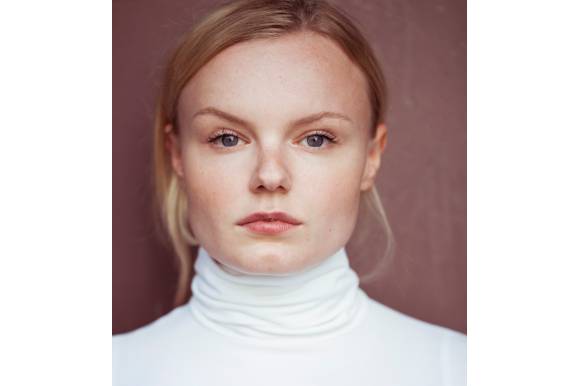FNE spoke to Romanian-German actress Maria-Victoria Dragus about her films that have often been sold to CEE countries in the past years, including Palme d'Or-winner The White Ribbon (2009) by Michael Haneke, about the collaboration with the Romanian director Cristian Mungiu in Graduation / Bacalaureat (2016) and R.M.N. (2022), both international coproductions produced by Mungiu through Mobra Films, and also about the challenges and the future of German and European cinema.
Maria Victoria Dragus was born into a Romanian artist family in 1994. At the age of five, she already accompanied her father, a cellist, on stage. From grade five on, she studied ballet at the Palucca School in Dresden, where her mother, a professional dancer, also used to be a student. Dragus first aimed at becoming a dancer herself, yet she early started acting alongside her school education and ballet training.
She got wide attention for her performance in Michael Haneke's multi-award-winning drama The White Ribbon (2009). Her portrayal of an abused preacher's daughter garnered her the German Film Award for Best Supporting Actress in 2010.
 In 2014, Dragus was among the ten annual "European Shooting Stars" honoured by the European Film Promotion (EFP) during the Berlin International Film Festival. In 2016, Cristian Mungiu's Bacalaureat screened in the Competition of Cannes Film Festival, winning the award for best director. The Romanian-language production featured Dragus in the lead role of a doctor's daughter who desperately wants to study at an elite university in the UK.
In 2014, Dragus was among the ten annual "European Shooting Stars" honoured by the European Film Promotion (EFP) during the Berlin International Film Festival. In 2016, Cristian Mungiu's Bacalaureat screened in the Competition of Cannes Film Festival, winning the award for best director. The Romanian-language production featured Dragus in the lead role of a doctor's daughter who desperately wants to study at an elite university in the UK.
FNE will be following this podcast with more in our series that will focus on German films in CEE countries plus Cyprus and Malta, and our partner countries’ films screening in Germany, as well as news about coproductions and other special events.
In 2024, German Films celebrates its 70 years anniversary. The Export Union der Deutschen Filmindustrie was founded in Wiesbaden in 1954, then was renamed German Films Service + Marketing GmbH in 2004 and has successfully been promoting German feature films and filmmakers around the world.
To put a special focus on 70 years of German cinema abroad, a film programme entitled “70 Years of German Cinema – A Success Story“ has been compiled as a retrospective, curated by Alfred Holighaus, development executive and producer at REAL FILM in Berlin and NORDFILM in Kiel, who selected a mixture of 14 feature films and documentaries. The aim of this film programme is to give German cinema abroad the special attention it so rightly deserves.
Click HERE for the podcast.




















